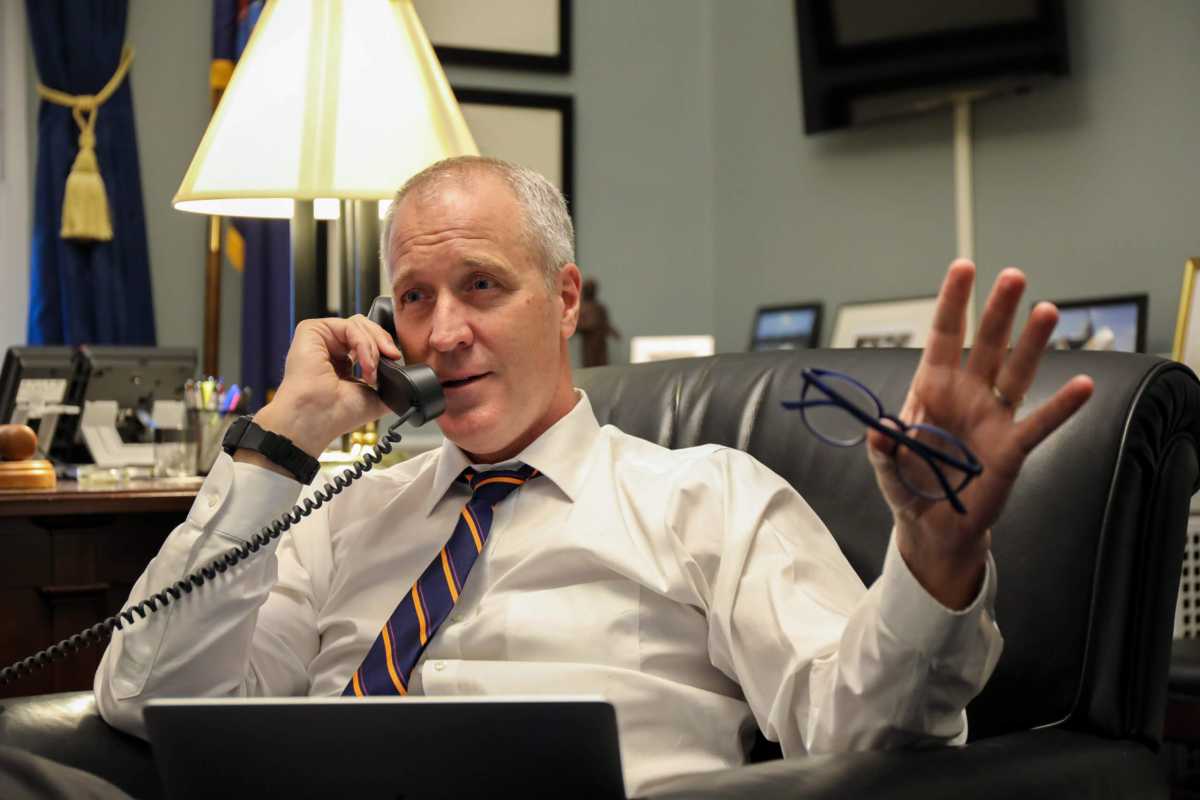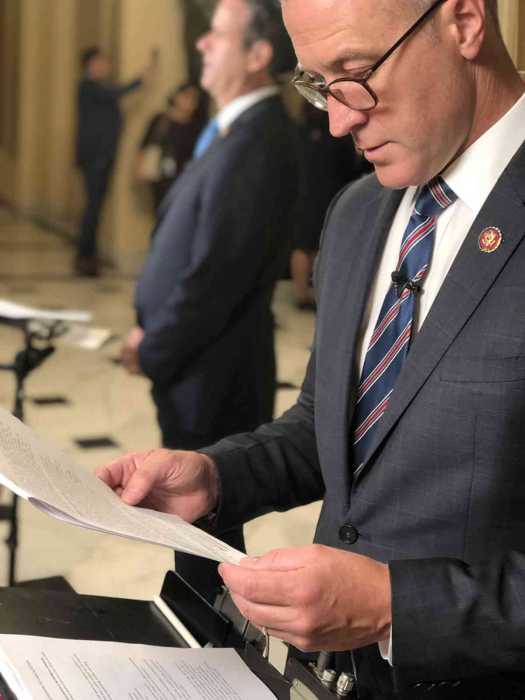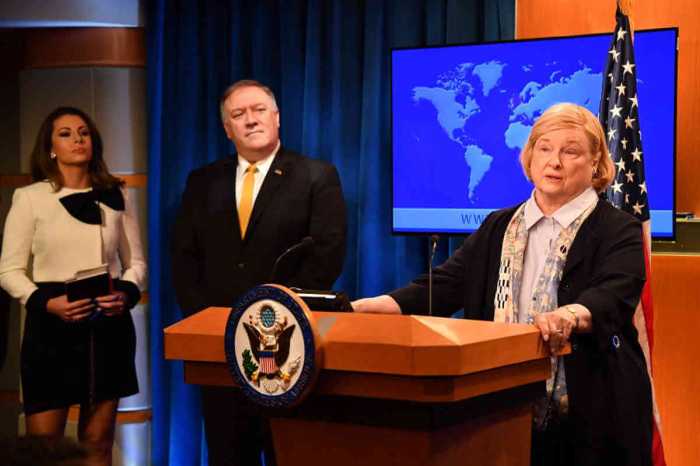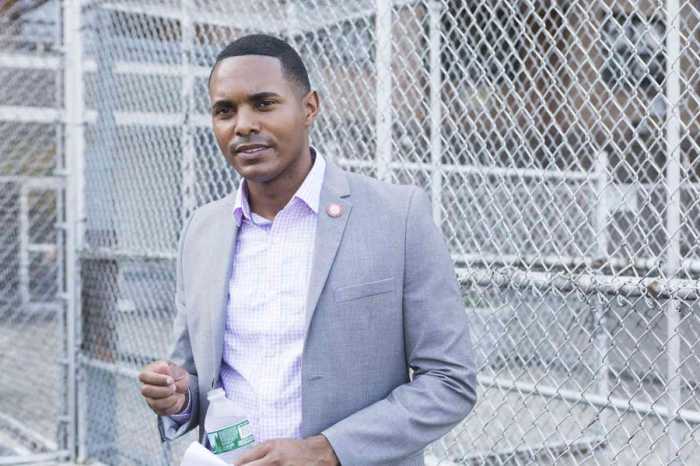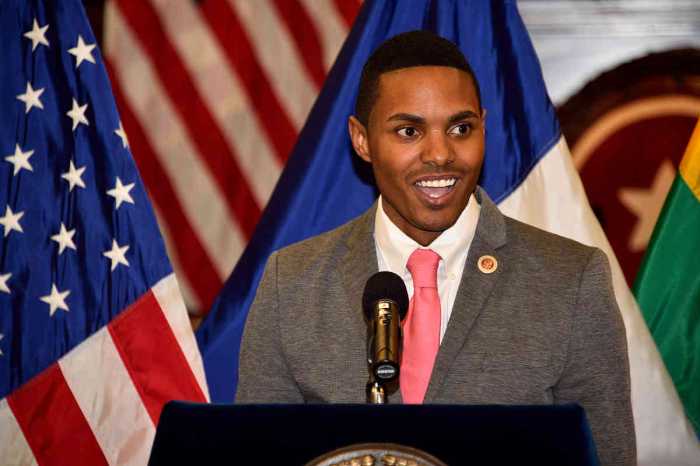In one of New York’s general election contests for Congress, a gay man is facing another gay man for the first time. In another race, a powerful gay congressmember is in danger of getting ousted. And yet, the dramatic race to the finish line at the top of the ballot is coinciding with much quieter races involving LGBTQ candidates for Assembly and State Senate.
LGBTQ candidates and queer issues are hanging in the balance, even as topics such as crime and the economy have absorbed much of the political rhetoric leading up to the midterm election. The state-by-state attacks on trans youth in healthcare and sports have coincided with hysteria over drag story hour — including in New York, where bigots harassed a solidarity rally for drag story hour as recently as October 28.
Among the key races in question is in New York’s Hudson Valley, where alarm bells have been ringing over the precarious candidacy of out gay Hudson Valley Congressmember and Democratic Congressional Campaign Committee Chair Sean Patrick Maloney in District 17. Maloney, the state’s first out gay member of Congress, is neck-and-neck in the polls with his Republican opponent, Assemblymember Mike Lawler, whose rise has prompted pro-Maloney television ads branding Lawler as “MAGA Mike.” Ads for Maloney have also played up his own support of police funding, showing just how far the political atmosphere has shifted since 2020.
Maloney ruffled feathers within his own party when he opted to run in the redrawn district currently occupied by another out gay lawmaker, Mondaire Jones, who tried unsuccessfully to run in another district during the Democratic primary. But the primary is long gone and now Maloney is fighting for his political life.
“For 10 years, I’ve had the honor of representing the Hudson Valley in Congress and I’m proud of the record of results I have to show for it,” Maloney told Gay City News in a written statement on November 2. “During the final days of this race, I am criss-crossing the district to ensure we reach voters in every corner of the 17th. As a gay man with an interracial family in a Trump district, I’ve always had to work hard to earn my seat, and that’s what I’m doing again this year.”
The DCC recently dumped $605,000 into Maloney’s election effort, according to CNN, and former President Bill Clinton campaigned on his behalf on October 29 in Nyack, where the former commander-in-chief warned that House Republicans would slash Medicare and cut Social Security should they regain power in Washington.
As for Lawler’s platform, it’s big on crime and inflation, but he also insists he would “empower parents to push back against age-inappropriate curriculum” — a talking point that resembles some of the language in the “Don’t Say Gay or Trans” legislation in Florida.
Lawler also has a history of dismissing LGBTQ issues. When New York State was preparing to repeal a loitering law known as a ban on “walking while trans,” he falsely described it as a bill that “decriminalized prostitution” and slammed the legislative effort as a deviation from issues facing working families in the state.
Elsewhere in New York, the state’s other out gay member of Congress is likely to cruise to re-election. Bronx Representative Ritchie Torres has millions of dollars in his war chest and is heavily favored over his little-known GOP challenger, Stylo Sapaskis.
Further east, in the home stretch of the race for New York’s Third Congressional District, Democrat Robert Zimmerman and Republican George Santos are engaged in what the LGBTQ Victory Fund says is the first-ever Congressional general election competition between two out individuals.
Zimmerman, a co-founder of a marketing communications company, has, like Maloney, invoked the prevailing narrative about crime by arguing for stronger gun laws and increased investments in police — and he touted an endorsement from former New York City Police Commissioner Bill Bratton during a debate with Santos. Zimmerman also supports more progressive causes like Medicare for All, student loan forgiveness up to $50,000, and the Equality Act, a federal LGBTQ non-discrimination bill.
Zimmerman recently received a boost from first lady Jill Biden when she made a campaign stop on his behalf. Santos, on the other hand, supported the president’s predecessor, Donald Trump, and was in Washington, DC on January 6, 2021 when rioters ransacked the Capitol building. Santos later described the crowd as “amazing” and said “the president was at his full awesomeness that day.” Santos has placed crime and inflation at the forefront of his campaign.
At the top of the ballot in New York State, voters are choosing between Democratic Governor Kathy Hochul and Republican Congressmember Lee Zeldin in what has become a surprisingly close race. Under Hochul, the state has increased funding for LGBTQ health and human services, though one of the more significant moments of the year came when the governor signed the Lorena Borjas Transgender Wellness and Equity Fund, which made New York the second state — after California — to create a fund dedicated to supporting trans-led organizations.
Hochul has faced pressure throughout the year from queer activists and non-profit leaders who have asked her to avoid overhauling a drug discount program for underserved local communities. That issue has yet to be resolved.
Zeldin, on the other hand, has a record of fighting against LGBTQ rights — from his time in the State Legislature to his days on Capitol Hill. While he voted in favor of marriage equality this year, he opposed it when he was a state lawmaker and he has targeted LGBTQ rights from multiple angles throughout his career, rejecting not only the Equality Act but also the inclusion of trans troops in the military. Like many other Republicans, he has repeated false and transphobic talking points about bathrooms.
“I opposed President Obama’s transgender bathroom directive and I support President Trump’s decision to change this policy,” Zeldin wrote in a Facebook post after the Trump administration banned trans troops.
Hochul, hoping to stave off an upset, was campaigning in Manhattan on October 31 with out LGBTQ lawmakers Brad Hoylman and Deborah Glick, while Zeldin’s campaign stops in the final week of October featured anti-LGBTQ Florida Governor Ron DeSantis, who has aggressively fought against trans rights as well as LGBTQ youth.
The race for lieutenant governor, meanwhile, features current Lieutenant Governor Antonio Delgado, a Democrat who formerly served in Congress, and former police captain Alison Esposito, a Republican who would be the first out gay lieutenant governor. While Esposito has never served in office before, Delgado voted in favor of the Equality Act when he was in Congress.
Other races featuring LGBTQ candidates are not quite as competitive. Hoylman has two third-party opponents in the race for State Senate in Manhattan’s District 47, Robert Bobrick and Maria Danzilo, while Republican Ian McKenzie is taking on out gay Assemblymember Daniel O’Donnell in Manhattan’s District 69. In Rochester, out gay Assemblymember Harry Bronson is getting challenged by Republican Tracy DiFlorio.
Other out incumbents — Glick, Assemblymember Jessica González-Rojas, and State Senator Jabari Brisport — are running unopposed.

